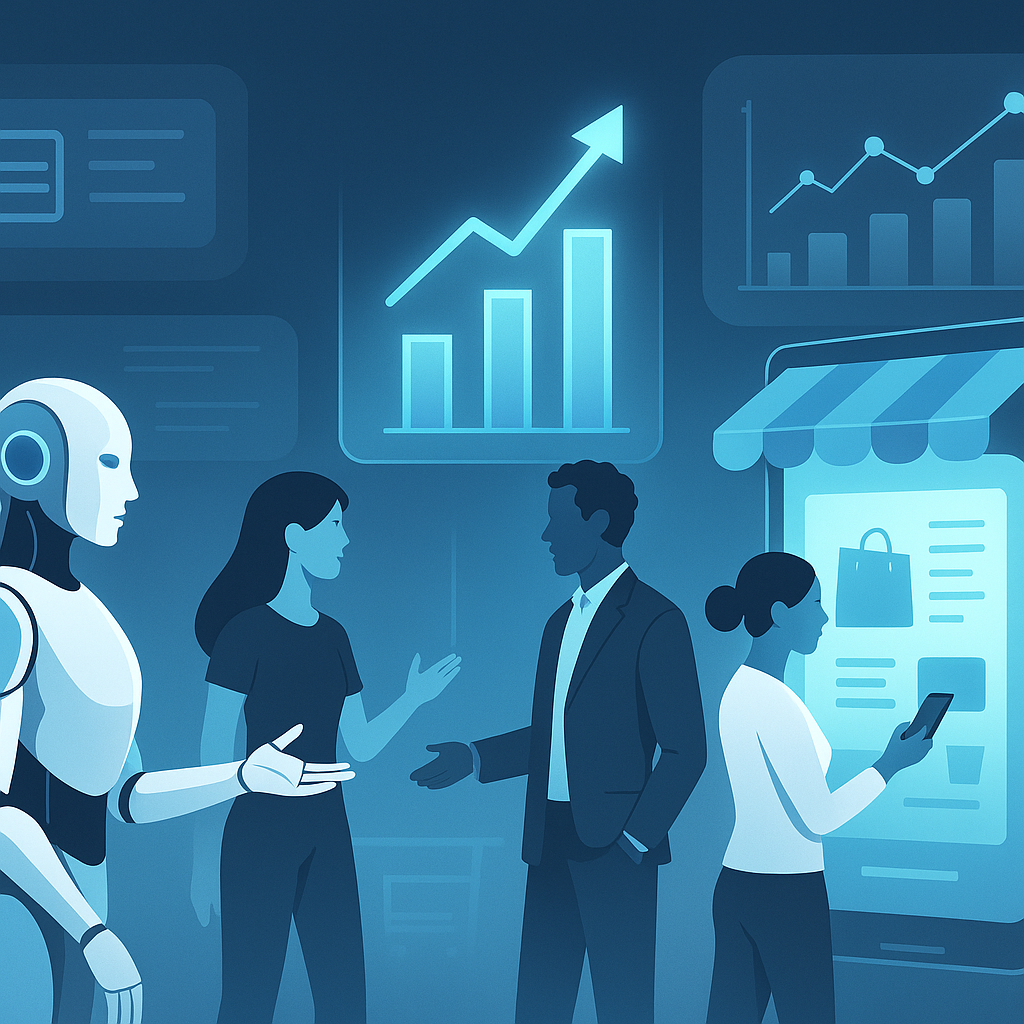
Artificial Intelligence Programs Revolutionizing E-Business & E-Commerce in 2024
Introduction
As digital marketplaces flourish, the role of artificial intelligence programs in redefining e-business and e-commerce strategies has accelerated dramatically in 2024. From hyper-personalized customer journeys to supply chain optimization and intelligent automation, AI is not only enhancing existing models but inventing entirely new paradigms of online commerce. This post delves into the critical AI-driven transformations that are shaping contemporary e-business landscapes.
AI-Powered Personalization: Crafting Unique Customer Experiences
One of the hallmarks of AI in e-business is its ability to analyze vast behavioral data in real time, enabling the creation of personalized experiences tailored to individual preferences on an unprecedented scale.
Dynamic Content and Recommendations
Modern AI programs utilize deep learning algorithms to generate dynamic product recommendations that evolve with customer behavior. For example, a leading global fashion retailer deployed an AI system that updates its homepage recommendations based on social media trends combined with user interaction, increasing conversion rates by 35% in early 2024.
Voice and Visual Search Enhancements
Artificial intelligence has pushed the boundaries of search technology. Voice assistants integrated with ecommerce sites allow shoppers to express their desires conversationally. Meanwhile, AI-driven visual search engines enable users to upload images and find exact or similar products instantly, reducing friction and boosting engagement.
Optimizing Operations with Intelligent Automation
AI programs are revolutionizing backend logistics and operations, streamlining processes that traditionally involved extensive manual labor.
Supply Chain and Inventory Management
Predictive analytics powered by AI anticipate demand fluctuations, enabling businesses to adjust inventory levels proactively. In 2024, companies are using AI-powered drones and autonomous robots in warehouses for real-time inventory tracking and order fulfillment, significantly reducing errors and delays.
Customer Service Chatbots with Emotional Intelligence
Beyond simple question-answer bots, AI chatbots are now equipped with natural language understanding and emotional intelligence capabilities. These sophisticated programs can detect customer sentiment and tailor responses suitably, providing empathetic, efficient assistance that enhances customer loyalty.
AI-Driven Pricing and Marketing Strategies
Advanced AI programs analyze competitor pricing, market demand, and customer data to optimize pricing strategies.
Dynamic and Personalized Pricing
Real-time pricing models leverage AI to adjust prices tailored to individual buyers’ willingness to pay, purchase history, and browsing patterns. This elasticity captures maximal value while maintaining transparency and avoiding customer alienation.
Automated Content Creation and Campaign Optimization
Generative AI tools produce marketing content—from social media posts to product descriptions—that resonate with target audiences. Coupled with AI analytics, marketers refine campaigns rapidly, reallocating budget towards high-performing channels and messaging.
New Business Models Fueled by AI Integration
Artificial intelligence programs are not merely improving traditional e-business; they are inspiring innovative commerce frameworks.
AI-Enabled Marketplaces and Social Commerce
In 2024, AI curates niche marketplaces by matching sellers and buyers through intelligent filters and community signals, creating ecosystems where discovery is effortless. Social commerce platforms integrate AI for influencer identification and trendspotting, connecting brands authentically with engaged audiences.
Subscription and Predictive Replenishment Models
AI algorithms analyze consumption patterns to offer subscription-based services with predictive restocking, ensuring seamless customer experience and steady revenue streams. For instance, AI-driven beauty product services customize monthly deliveries based on evolving skin metrics provided by customers.
Challenges and Ethical Considerations
Despite its benefits, AI integration into e-business models raises concerns regarding privacy, data security, and algorithmic bias. Transparent data policies and ongoing audits are vital to maintaining trust and ensuring equitable AI practices in commerce.
Conclusion
Artificial intelligence programs have become indispensable architects of 2024's e-business and e-commerce strategies. By enabling hyper-personalized customer experiences, automating complex operations, refining pricing and marketing tactics, and spawning new commerce models, AI empowers businesses to thrive amid fast-changing digital landscapes. As these technologies continue to evolve, maintaining ethical vigilance will be crucial to harnessing their full potential for inclusive and sustainable growth.






